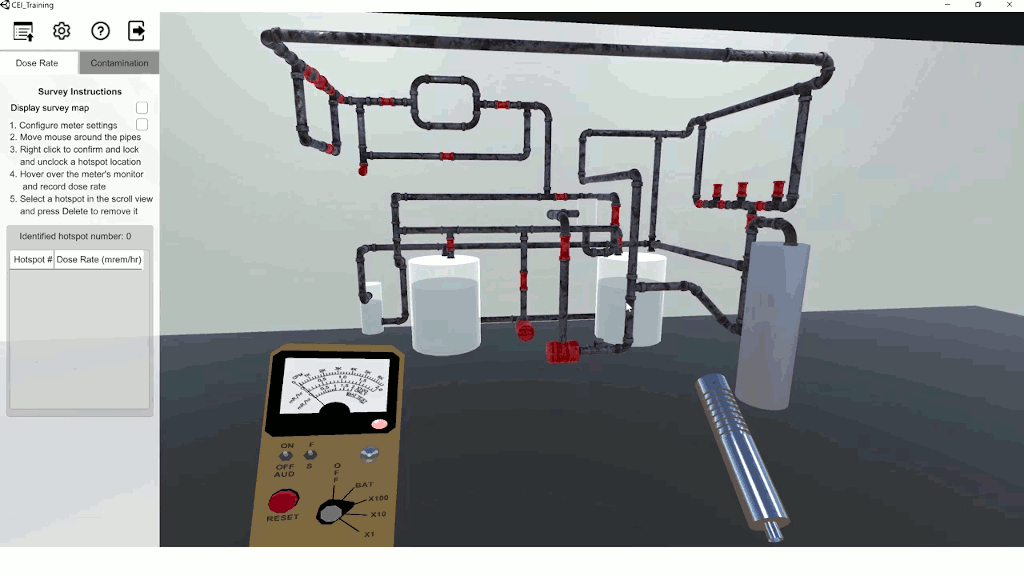The research teams awarded CAES Collaboration Program Development Funds in the spring recently presented their outbriefs to the CAES Executive Board. The collaboration funds have been awarded for four years to projects led by Idaho National Laboratory researchers that include faculty from the CAES universities. The goal is to establish and foster relationships between the CAES entities in research, education and innovation. Each year, CAES leadership identifies the proposals best-suited to enhance collaborative relationships among the CAES entities in at least one of the seven focus areas outlined in the CAES Strategy, with priority given to projects with a tie to future direct-funded work such as through a US Department of Energy solicitation. This year, eight projects were selected:
Evaluation of USB Peripherals: Craig Rieger (INL) Costas Kolias (UI)
• This project calls for initiating the steps needed to introduce a system for the evaluation of external USB devices before being introduced to an IT network.
• The deliverable includes a market survey, proposal toward the project concepts and interface with potential customs at Office of Naval Research (ONR) and Department of Homeland Security-Cyber & Infrastructure Security Agency. The researchers met recently with the ONR representatives and plan to connect with additional contacts.
Advanced Manufacturing Materials Development: Boopathy Kombiah (INL) Indrajit Charit (UI)
• This proposal calls for developing a joint proposal focusing on the welding and joining of high entropy alloys with potential for applications in advanced reactors. The goal is to gain a better understanding of suitable welding processes for the alloys and its effect on their microstructure and properties, to ensure the alloys are qualified for nuclear applications.
Cyber Vulnerability Issues of Distribution Systems: SM Shafiul Alam (INL) Yacine Chakhchoukh (UI)
• This collaborative effort explores the key challenges and opportunities of expanding cyber resiliency practices from the electric transmission grid to the distribution system. This effort will develop ideas on how to better utilize the existing distribution system monitoring and control practices and determine the maximum feasible improvement necessary to address the cyber vulnerability in the presence of distributed, and behind-the-meter renewable energy resources such as rooftop solar.
Randomized Computing for Multiphysics Modeling and Simulations: Som Dhulipala (INL) Leslie Kerby (ISU) Lars Kotthoff (UWy)
• This project calls for writing two proposals in the general area of randomized computing for multi-physics modeling and simulations in advance of to two anticipated DOE funding opportunities: DOE-Office of Science’s Advanced Scientific Computing Research program and (2) DOE-Nuclear Energy’s Consolidated Innovative Nuclear Research program.
Supply Chain Professional: Amy Lientz (INL) Karen Corral (BSU) Jim Kroes (BSU)
• This collaborative effort led to the creation of a career-awareness video for university and INL websites. The researchers are considering ways to further tie in the video and their awareness efforts to workforce development/engagement across Idaho universities?
Bulk Storage of Hydrogen Energy Kunal Mondal (INL), Mustafa Mashal (ISU)
• This proposal focuses on the following aspects to establish new research for hydrogen storage at INL in collaboration with ISU researchers:
o Reviewing existing technologies
o Identifying research collaborators, capabilities and facilities from INL and CAES universities
o Developing a robust and systematic research plan for the use of 3D printing and advanced manufacturing for hydrogen tanks, liners and other components
o Engaging and mentoring students from ISU
o Teaching a short training class in advanced manufacturing/3D printing of metals for researchers from INL and CAES universities
o Technology transfer and challenges from civil engineering (e.g. prestressed concrete) to energy storage (hydrogen tank)
o Identifying funding agencies in addition to DOE’s H2@Scale initiative
Thermal Analysis of Nuclear Materials: Lu Cai (INL), Tsvetoslav Pavlov (INL), Lan Li (BSU)
• This proposal calls for establishing collaborative research in the following topics:
o Thermal analysis of fuel/cladding interface
o Development of new thermal conductivity and contact conductance measurement techniques and algorithms based on laser-flash and thermo-reflectance
o Water chemistry effects on cladding and fuel performance
• The group identified an opportunity to apply for Nuclear Energy University Program funding under the working scope of RC-4: High Temperature Reactor Pebble Fuel Testing Development.
Radiological Dispersal Device Training: Bryon Marsh (INL), Mustafa Mashal (ISU)
• This proposal calls for the development of a roadmap document to help implement Department of Homeland Security’s national guidance on local planning for an effective response to a post Radiological Dispersal Device detonation event. The roadmap will link curriculum at ISU’s Disaster Response Complex and INL so efforts are not duplicated and gaps are addressed. Ti will also link existing and future customers to a shared business engagement plan; develop a national training capability that addresses needs; and provides increased engagement between INL and ISU.






